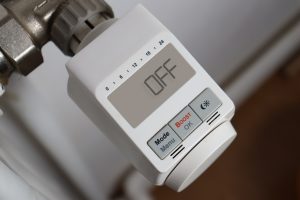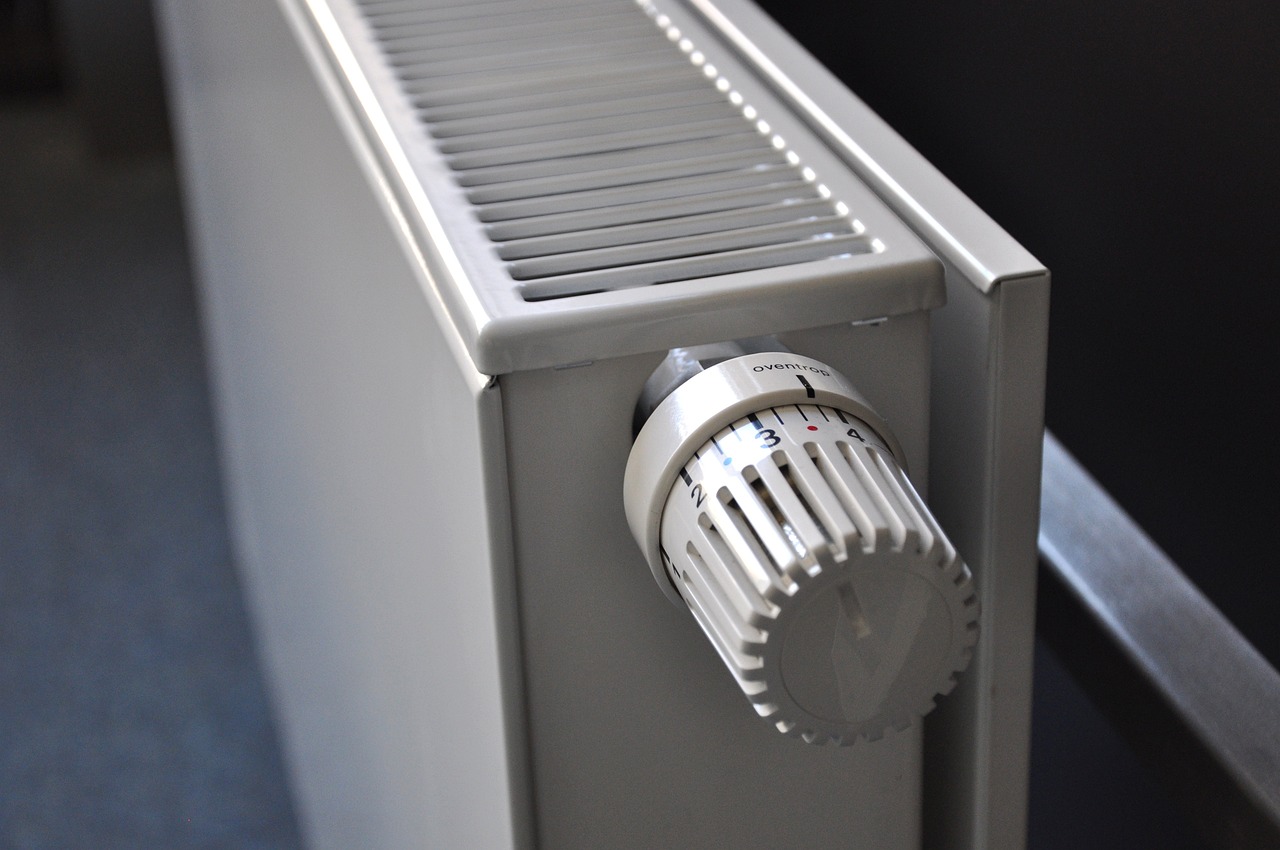Is it best to turn off radiators in unused rooms?
It is not always the best approach to turn off radiators in unused rooms as it may not necessarily reduce heating bills and might even increase them, especially if you have a modern condensing boiler or a heat pump.
This is because condensing boilers work far more efficiently at lower flow temperatures, so you could instead use a lower flow temperature and the energy contained in the hot fumes released through the boiler flue could be used to heat additional radiators.
To keep heating costs the same or potentially lower them, ensure radiators are used throughout your property and use a lower flow temperature. It’s essential to keep radiators on in all rooms and turn down the thermostatic radiator valve or TRV in unused rooms by approximately half a digit.
To achieve this, you can adjust your boiler’s flow temperature by following the manufacturer’s instructions, or you could use smart modulating thermostats that can set the ideal flow temperature for you automatically.
Maximizing radiator surface area and lowering your boiler’s flow temperature increase efficiency and can help maintain or lower your heating bills.
How much do you save by turning of a radiator?
Turning off radiators in rooms that are not being used can help save on gas usage and reduce extra costs. Gas central heating systems use boilers to heat water, which is then circulated through pipes to warm up rooms via radiators. The more radiators that are used, the more gas is consumed.

To save on gas usage, one can turn off the radiators in unoccupied rooms, which can save around 6p per hour for 400-watt models. Additionally, keeping the doors to these rooms shut and windows closed can help prevent the rooms from getting too cold without the heating turned on.
Therefore, by turning off a radiator in an unused room, one can save money on their gas bill and reduce unnecessary energy consumption.
Is it cheaper to keep radiators on low all the time?
Many individuals mistakenly think that leaving radiators on low all day can save them money and energy. Just using the heater when necessary is the most efficient approach to reduce energy and utility costs. This can be achieved by setting the thermostat’s timer to cycle the heating on and off as needed to maintain the appropriate temperature.
The most crucial aspect to take into account is the overall quantity of energy needed to heat a home.
Due to inadequate insulation, energy is continuously wasted from the home when the heater is left on all day. Hence, turning the heat on all the time is not a good approach to save energy.
Some experts contend that it may be more effective to keep the heating on a low setting throughout the day with all radiator valves turned to their highest setting and the boiler set to its lowest setting.

They assert that turning on and off the heating can lead to condensation building up inside the walls, which can transport heat outside the house and cause a quicker loss of heat and ultimately higher energy use.
The most energy-efficient strategy, according to many experts, is to only use the heating when necessary. It is important to highlight that this viewpoint is not widely shared.
The best strategy to reduce energy use and costs will ultimately rely on a person’s unique situation and the level of insulation in their home. So, before choosing a strategy, it is vital to evaluate the insulation and heating requirements of your property.
In order to maintain the correct temperature, it is essential to only switch on the heating when absolutely necessary. In order to reduce energy loss, it is also crucial to guarantee that your property is suitably insulated. You can keep your house cozy and pleasant while saving money and energy by following these measures.
Is it cheaper to heat one room or the whole house?
The efficiency of heating a single room versus the whole house depends on the main method used to heat the home, the size of the room in comparison to the whole house, and the insulation of the house.
For a modern gas or oil central heating system and a well-insulated home, it’s best to use the central heating system to heat most of the home rather than just one room.
If you have temperature controls on your radiators, it’s possible to vary the temperature of different rooms in the house, allowing you to keep a reasonable background temperature around the home while increasing the temperature in a particular room when needed.
If you don’t have temperature controls, it’s best to use a gas fire or electric heater in a room where you spend a lot of time while maintaining a reasonable background temperature in the rest of the home.

If the main method of heating the home is a storage heater, it may be worth heating a small room separately, but it’s essential to close the door of the room to keep the heat in.
If your living room has a gas fire, it’s only worth using it instead of the central heating system if the room is less than a third of the size of your home.
Portable heaters and small heating devices are not energy-efficient and can easily overheat the room. In smaller homes, it’s generally not worthwhile heating an individual room, while in larger homes, a small room may be worth heating individually if it’s less than a quarter of the size of the whole house.
An open-plan layout won’t be energy-efficient to heat just one room. Health, safety, and comfort are also important factors to consider when deciding whether or not to heat a room individually.
Does it cost less to heat 1 radiator?
The cost of heating a room with an electric heater versus a gas or oil boiler depends on the size of the room, how well-insulated it is, and the size of the gas or oil bills. It is recommended to start by knowing your current heating costs by looking at your energy bill or the amount of oil you buy per year.
Electric heaters come in different forms with outputs ranging from 500 watts to 2.5 kilowatts, and their efficiency does not vary.
Their kWh output depends on the time they are on and their output. It is difficult to calculate how much the heater will be on, so the cost comparisons assume the heater is on full capacity for the whole day. For small offices or sitting rooms in homes that use a lot of gas or oil, using an electric heater is cheaper.
If you turn all your radiator valves off except for one room, the boiler will run inefficiently, although it may still cost less than using an electric heater. Using a log burner can be tricky as the cost depends on the type of wood used, whether it is hard or soft, dry or damp. Good quality seasoned wood costs around 10p per kWh.







